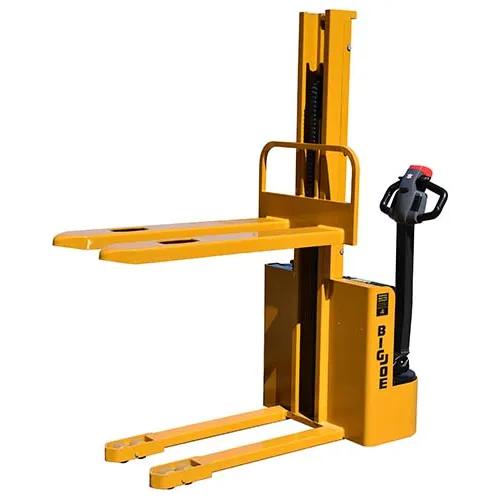How Can You Tackle the Complexities in the Fertilizers and Lawn Care Industry?
The fertilizers and lawn care industry is fraught with challenges that require strategic solutions to enhance operational efficiency. The perennial question remains—how do we significantly boost warehouse efficiency amidst these hurdles? With comprehensive solutions focused on optimizing material handling processes, we can counter problems such as product contamination, pest infestation, and the broader spectrum of inefficiencies that plague the industry.
What Are the Main Obstacles Facing the Fertilizers and Lawn Care Sector?
How Can We Prevent Contamination Effectively?
Ensuring a pristine and unencumbered facility is pivotal to maintaining safe and protected goods. The essence of efficient sanitation lies in using the right tools that simplify this vital process while minimizing downtime. With effective solutions, swift and thorough cleanliness translates directly into improved safety and productivity.
How Should We Address DOT Compliance and Minimize Damaged Goods?
Handling damaged goods can severely disrupt production lines, requiring tedious cleanups and leading to shipment delays and customer dissatisfaction. Solutions must therefore include adaptable equipment that anticipates demand and maintains the quality of goods. Revamping product lines to elevate quality while safeguarding against loss is vital.
In What Ways Can Productivity Be Elevated?
Enhancing productivity is an evergreen concern across industries, including fertilizers and lawn care. It calls for a multifaceted approach, reducing downtimes, optimizing order fulfillment, and ensuring efficient loading operations. Investing in high-quality material handling equipment lets businesses pivot reliance from manual to more machine-driven processes, thus scaling operations efficiently.
How Do We Sustain Workplace Safety?
The safety of personnel hinges on minimizing risky physical tasks, which can be achieved by leveraging mechanization over manual handling. Eliminating hazards associated with tipping or turning pallets enhances workplace safety and feeds into overall productivity.
Can We Meet Retailer Demands Efficiently?
Retailer requirements demand advancement in product quality while alleviating associated costs such as packaging. The cost of returns and rework necessitates precision in logistics operations, ensuring damage-free delivery to retail stores. Harnessing expertise in equipment selection reduces costs and maintains quality, effectively aligning with retailer stipulations.
What Solutions Exist to Overcome These Challenges?
Are Pallet Inverters the Key to Optimal Handling?
Navigating high demand fluxes in the fertilizer and lawn care space requires robust strategies. Strategic use of pallet inverters can streamline the swapping processes, thus enhancing safety and cutting costs associated with product handling. The diversity in pallet inverter options—from single to ground loading—ensures tailored solutions for varied load types, ensuring productivity and safety are maintained.

How Can Level Loaders Lift Tables Revolutionize Workflow?
Enhancing ergonomic efficiency through mechanical adjustments such as level loaders lift tables aids significantly in operational fluidity. This equipment adjusts to load size dynamically, reducing manual strain and fostering a more comfortable work environment, which enhances overall logistical efficiency.
Why Are Plastic Pallets Superior?
In the pursuit of hygiene and durability, plastic pallets present a transformative alternative. Plastic transcends wooden counterparts by offering consistent weight and dimensions, reducing injury risks, and providing chemical resistance. These attributes favorably impact sanitation and reliability across the board.

What Role Do Stretch Wrappers Play in Maintaining Package Integrity?
Keeping packages intact during transit is non-negotiable, and stretch wrappers fulfill this critical role with efficiency. They maintain product positioning, mitigate damage risks, and offer cost-effective material usage. With options like overhead and robotic types, operations can achieve substantial labor and material savings.
Why Should You Collaborate With Experts?
How Can Working With Industry Leaders Benefit Your Operations?
Partnering with seasoned providers allows access to solutions that span saving time, cutting labor costs, and enhancing compliance with safety standards. Collaborative efforts facilitate tailored solutions that align with operational needs, thus maximizing return on investment through elevated productivity and sanitary conditions.
What Does an Optimal Fertilizer Warehouse Layout Entail?
Designing an efficient warehouse layout is an intricate task that significantly impacts productivity. Expertise in layout planning can navigate pre-existing issues, optimize space, and enhance traffic management within facilities. Consulting with layout specialists ensures logistical efficacy is achieved.
What Can We Learn From Industry Feedback?
How Did We Solve Scotts – Hyponex's Unique Challenges?
The seasonal nature of products like fertilizer necessitates robustness in pallet handling. Estimations revealed that introducing a pallet inverter directly tackled pallet wear, product damage, and layout inconsistency issues. Solutions that incorporate product inversion and material recovery proved to be immensely beneficial.
In conclusion, maneuvering through the dynamic landscape of the fertilizers and lawn care industry poses a kaleidoscope of challenges. Yet, with insightful investments in apt equipment and strategic partnerships, these challenges can transform into avenues for growth.



